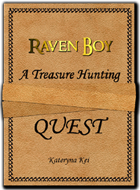Sveinn's father's story
Sveinn’s father, Azad, was born in Persia. He grew up and became a blacksmith, like his own father. He had a beautiful wife and two sons, and was respected for his fine work and good nature.
But one day the Arabs came. They had already conquered most of the country and were seeking to conquer Azad’s town.
The Persians were brave. They loved their land. They all stood up together and fought the conquerors. But the Arabs were too many. Like a huge unstoppable tide coming from all sides at the same time, they swallowed the town, mercilessly slaying everyone in their path.
Fate was cruel to Azad—his beloved sons and his wife fell to the hands of the conquerors. Azad was badly wounded, but not enough to follow his family in death. He fell into the enemy’s hands. The Arabs did not normally keep male prisoners, but one of them recognized Azad, for he had once passed by his smithy. Having heard of Azad’s skill, the Arab chieftain ordered them to heal his wounds and keep him captive.
His heart filled with pain and hatred, Azad wanted to refuse the Arabs, so that they would have to kill him. But his healing wounds gave him a lot of time to think. He could not forget the warriors who had killed his sons and wife, and he was living those horrible moments again and again in his dreams, pain and helplessness weighing down his soul. Azad craved revenge, and his own death was no longer enough.
As his body healed, a new plan started forming in his sorrow-stricken mind—a plan that would allow him to avenge not only his own family, but also the other innocent people who had fallen under the swords of the evil conquerors.
Driven by his thirst for revenge, Azad learned to hide his feelings and thoughts, and to remain calm, obedient, and detached. He returned to his smithy and worked day and night, crafting a new way of making swords. The Arab chieftain was pleased with Azad’s eagerness and devotion to his work. He did not suspect that the new swords made by the talented blacksmith had a hidden flaw: the blade that seemed so sharp and strong was designed to shatter into pieces if hit at a certain angle.
In just a few short weeks, Azad was able to make such swords for half the Arab warriors, who were preparing yet another conquest. The chieftain himself was pleased by his zeal.
The night before the planned conquest, Azad decided that his time had finally come. He unlocked his chains with a key that he had made when no one was watching, and crept into the darkness. He had neither doubt nor fear: only the burning desire for revenge that cleared his senses and led him forward. He found the men who killed his family and quickly slew one of them. The other fought back, but Azad’s anger was so strong that he overpowered this man too, thrusting his sword through the warrior’s heart. Just then, he heard running footfalls—the guards coming for him. Azad turned and ran, the blood-covered sword in his hand.
He felt surprisingly detached and calm. It was as if a divine force was guiding him: into a house, to the rooftop, across several roofs, over the town wall... He ran away from the town where he had lived all his life, away from the scattered remains of everything that had been dear to him.
From the top of the town wall, the guards screamed and fired arrows at him, and still he ran. One arrow struck him in the back, and though he fell, he quickly scrambled up and ran again. He did not know where he was going, he was just running, running with all his might. He was not running for his life, but for his death, only wishing now to die free. His body was tiring, but he was only dimly aware of it. Even when dark spots started dancing before his eyes, he kept running. He welcomed darkness, seeking oblivion. And finally, darkness came. It slowly descended upon him, enveloping his mind like a thick veil. The world faded and noises drowned, replaced by an impenetrable, soothing silence.
However, death did not take Azad this time either. He woke up some time later in the cart of a traveling merchant. The man had found Azad wounded and nearly dead beside the road. He kindly removed the arrow from Azad’s back, cleaned the wound, and made sure Azad’s pursuers did not find him. Little by little, his arrow wound turned into an ugly white scar that would occasionally send jolts of pain through his body, momentarily freezing him in place, reminding him of his past.
Finally free, Azad decided to travel with the merchant until he figured out what to do with his empty and useless life. He helped the merchant as much as he could, and the kind man simply accepted it, never asking questions.
Several months later, Azad finally heard news of his clever invention: his plan had worked and the conquerors had lost their most recent battle, the inhabitants of the neighboring town managing to draw them back. However, this small victory was short-lived—the Arabs brought even more warriors and seized control of all the southern territories, including the poor neighboring town.
For two long years, Azad traveled with the merchant. However, he eventually got tired of traveling. Lying on the rough ground under his traveling cloak, he dreamt of a warm house where he could hide from the weather that was bringing back the pain in his back.
One day, they arrived in the land of long winters and fjords. The local people greeted them kindly and invited them to stay for some time. Azad and his friend were given simple but real beds in the warmth of a big house. Trading was also easy with these northern people. Azad and the merchant sold their spices, jewelry, and swords, and bought furs, leather, and walrus ivory. Talking to the local people, Azad discovered their way of life. He liked it, and decided to stay.
Konungr Ragni allowed Azad to stay, and his friend the merchant met his decision with calm acceptance. To thank him for everything he had done, Azad gave the merchant his share of goods and some money.
With some help from the local people, he built himself a small, simple house and a smithy at the outskirts of the town. There he settled and worked, making tools for everyday life. Everyone was nice and friendly to him. Little by little, he made a couple of friends and even found a woman who captured a small piece of his heart. It was not like his love for his first wife, but the woman was kind, calm, and good-natured, and in addition to her good looks, she was a talented cook and a hard worker.
They married according to the local tradition. Happiness was slowly coming back into Azad’s life. And destiny sent him another precious gift—Azad became a father again.
They called the boy Sveinn. Sveinn was fair-looking, strong, and smart, and Azad spent as much time with him as his work would allow him. He enjoyed teaching the boy everything he knew, and the three of them were a very happy family.
But when Sveinn was three, his mother suddenly fell ill. They tried everything they could, but nothing helped, and one winter night she died.
Azad was stricken with grief and pain, and for several days he could neither eat nor drink. But the town folk were there to help: Konungr Ragni took Azad and little Sveinn to his own house, and his family took care of them as if they were their own: meanwhile, neighbors and friends organized the funeral and provided them with food, warmth, and company for the rest of the winter.
Azad never forgot the kindness that the konungr and all the neighbors had showed him. Despite his firm decision to never again make swords, he made one for Ragni’s eldest son Torgeir. Ragni respected Azad’s decision, and apart from Ragni, Azad, and Sveinn, no one ever knew that the fine sword was made by Azad. To thank his other neighbors and friends, Azad gifted each and every one who had helped him with something that he made in his smithy.
When Sveinn had grown a little older, his father started teaching him the art of smithery. The boy was smart and talented, and by the time he was twelve, he knew almost everything his father knew, and was an eager assistant.
But the tragedy came unexpectedly, shattering their simple happiness into pieces. One autumn evening, the father and the son were working at the smithy as usual. They wanted to make a new plow, and Sveinn was curious about trying the Damascus steel for farming tools. They had discussed the idea over and over and decided to make a steel plow with multiple furrows. The steel was melting in the furnace, filling up the large cauldron they had made for this purpose. The air around them was hot, and their hands and faces were dirty, but the father and the son felt happy and excited, getting ready to give the world a new invention.
When the steel was ready, they seized the cauldron by the handles—Sveinn from the right and Azad from the left—and began to carry it to the form. But as they lifted the hot, heavy cauldron, a strong, unexpected jolt of pain shot from Azad’s scar through his whole body. With a helpless groan, he felt the handle slip out of his hands. The scorching cauldron fell and bumped against the ground, burning Sveinn’s knees. The molten steel rose in a furious wave and rolled over the edge of the cauldron, splashing on the ground and swallowing Azad’s legs from the knee down in a white-hot embrace. Fighting back his pain, Sveinn caught the cauldron and lowered it to the ground. But he was not quick enough to catch his father, whose heart-wrenching screams pierced the air as he fell into the burning fire.
Azad was screaming and writhing in pain, and it was difficult for Sveinn to pull him out of the fire, but panic doubled the boy’s strength. Ignoring his own burns, he managed to free his father from the flame and dragged him outside.
The neighbors heard Sveinn’s screams and hurried over. Caring hands brought cold water and did their best to ease Azad’s pain. But his burns were too severe.
Azad died the next morning in his son’s arms.
Sveinn took his father’s death stoically. Quiet and discreet as he was, he silently cried at night when no one was there to see, but once the funeral ceremony was over, he locked his now empty house and went to see Torgeir. He asked to join the young konungr's sailing crew, and as Sveinn was twelve already, Torgeir accepted.
Sveinn became a good sailor and a wise and reliable warrior whose skill with the sword remained unmatched until Hrafn, Torgeir’s son, reached manhood and learned enough from Sveinn to make them evenly matched.
After that horrible evening, Sveinn never worked in the smithy again. He avoided all questions and conversations about it, and little by little, people stopped asking, seeing in Sveinn only the warrior that he had become.



